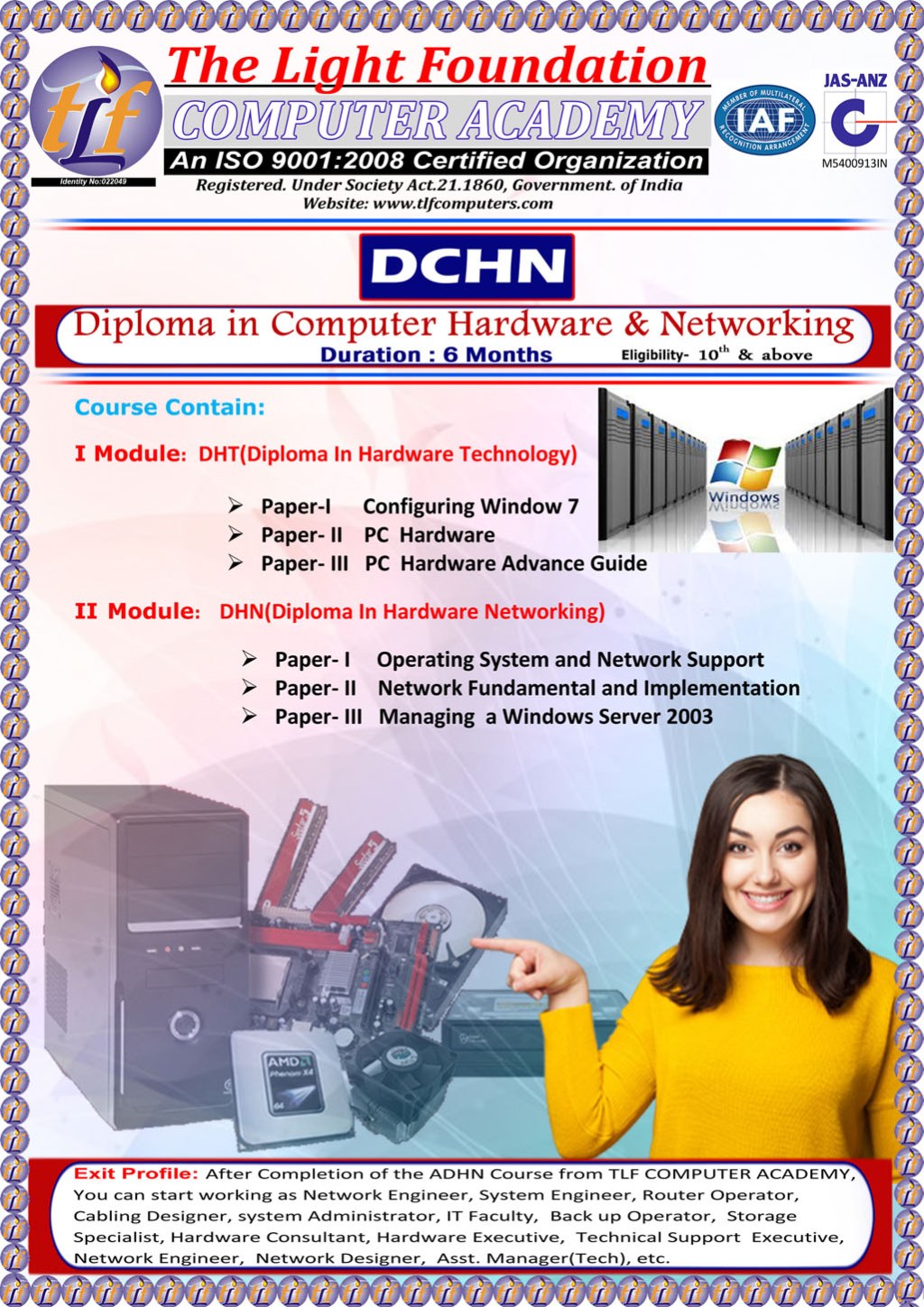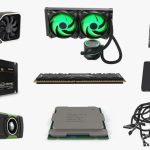Unlock Your Potential: Computer Hardware For Diploma – Master The Tools That Shape The Future
Computer Hardware for Diploma
Introduction
Hello Readers,
1 Picture Gallery: Unlock Your Potential: Computer Hardware For Diploma – Master The Tools That Shape The Future

Welcome to our article on computer hardware for diploma. In today’s digital age, having a strong understanding of computer hardware is essential for anyone pursuing a diploma in computer science or related fields. In this article, we will explore the different aspects of computer hardware, its importance, and how it can benefit you in your diploma studies. So, let’s dive in and discover the world of computer hardware!

Image Source: tlfcomputers.com
Here is a table with all the information you need to know about computer hardware for diploma:
Component
Description
CPU (Central Processing Unit)
The brain of the computer, responsible for executing instructions and performing calculations.
RAM (Random Access Memory)
A type of computer memory that stores data that is actively being used by the CPU.
Hard Drive
A storage device that stores all your data, including the operating system, applications, and files.
Motherboard
The main circuit board of the computer that connects all the components together.
Graphics Card
A specialized card that handles the rendering of images, videos, and games on your computer.
Power Supply
Supplies electrical power to the computer, converting AC power to DC power.
Monitor
The display screen of the computer, where you can see all the visual output.
What is Computer Hardware for Diploma?
Computer hardware for diploma refers to the physical components that make up a computer system. It includes the central processing unit (CPU), random access memory (RAM), hard drive, motherboard, graphics card, power supply, and monitor. These components work together to execute instructions, store and retrieve data, and display visual output.
Who Should Learn about Computer Hardware for Diploma?
Anyone pursuing a diploma in computer science, information technology, or a related field should learn about computer hardware. It is especially important for those who want to specialize in computer hardware engineering or become computer technicians. However, even if your focus is on software development or network administration, a solid understanding of computer hardware will give you a competitive edge in the industry.
When Should You Study Computer Hardware for Diploma?
It is recommended to start studying computer hardware for diploma right from the beginning of your program. This will give you a strong foundation and allow you to apply the knowledge gained in your coursework and projects. As you progress in your studies, you can delve deeper into advanced topics and explore specialized areas of computer hardware.
Where Can You Apply Computer Hardware for Diploma?
The knowledge of computer hardware gained during your diploma studies can be applied in various professional settings. You can work as a computer technician, diagnosing and repairing hardware issues in computers. You can also pursue a career as a hardware engineer, designing and developing computer components. Additionally, you can use your understanding of computer hardware to optimize system performance, troubleshoot problems, or even start your own computer repair business.
Why is Computer Hardware for Diploma Important?
Computer hardware is the backbone of any computer system. Without a solid understanding of computer hardware, it would be challenging to diagnose and fix hardware issues, optimize system performance, or even build custom computers. Furthermore, as technology continues to advance, the demand for professionals with expertise in computer hardware is expected to rise. By gaining knowledge in this field, you can enhance your employability and future-proof your career.
How to Study Computer Hardware for Diploma?
Studying computer hardware for diploma requires a combination of theoretical knowledge and hands-on practical experience. You can start by enrolling in relevant courses or modules offered by your educational institution. Additionally, you can explore online resources, such as tutorials, videos, and forums, to further enhance your understanding. Hands-on experience can be gained through lab sessions, projects, or internships, where you can apply the concepts learned and work with real computer hardware.
Advantages and Disadvantages of Computer Hardware for Diploma
Advantages:
1. In-depth understanding of computer hardware enables you to troubleshoot and fix hardware issues on your own.
2. Knowledge of computer hardware enhances your problem-solving skills and logical thinking abilities.
3. It opens up various career opportunities in computer hardware engineering, computer repair, or system administration.
4. With computer hardware expertise, you can build custom computers tailored to specific needs.
5. Computer hardware knowledge complements software development skills, making you a well-rounded IT professional.
Disadvantages:
1. The rapid advancements in computer hardware require continuous learning and staying updated with the latest technologies.
2. Dealing with computer hardware can be physically demanding, involving lifting heavy equipment and working in tight spaces.
3. Hardware issues can sometimes be complex and time-consuming to diagnose and fix, requiring patience and troubleshooting skills.
4. Specialized hardware components can be expensive, making it challenging for individuals on a tight budget to experiment or upgrade their systems.
5. Computer hardware knowledge alone may not be sufficient in today’s technology-driven world; a combination of hardware and software skills is often required.
Frequently Asked Questions (FAQs)
Q: Can I learn computer hardware on my own?
A: Yes, you can learn computer hardware on your own through online resources, books, and practical experimentation. However, enrolling in a diploma program or taking relevant courses can provide a structured learning experience and guidance from experienced instructors.
Q: What are the essential tools for working with computer hardware?
A: Some essential tools for working with computer hardware include screwdrivers, pliers, cable testers, thermal paste, and anti-static wristbands. These tools help in assembling, disassembling, and troubleshooting computer components.
Q: Is computer hardware a rapidly changing field?
A: Yes, computer hardware is a rapidly changing field. New technologies and advancements are constantly being introduced, making it essential for professionals to stay updated with the latest trends and developments.
Q: Can I build my own computer with minimal knowledge of computer hardware?
A: Yes, building your own computer is possible with minimal knowledge of computer hardware. There are plenty of online resources and tutorials available that provide step-by-step guidance. However, it is always recommended to have a basic understanding of computer hardware to ensure compatibility and avoid potential issues.
Q: How can computer hardware knowledge benefit my career?
A: Computer hardware knowledge can benefit your career by opening up various job opportunities in the IT industry. It can also enhance your problem-solving skills, logical thinking abilities, and overall understanding of computer systems, making you a valuable asset in any organization.
Conclusion
In conclusion, computer hardware is an essential aspect of any diploma program in computer science or related fields. It provides a solid foundation and enables you to understand the inner workings of computer systems. By gaining knowledge and practical experience in computer hardware, you can enhance your career prospects, troubleshoot hardware issues, and even build your own customized systems. So, embrace the world of computer hardware and unlock endless possibilities in the digital realm!
Thank you for reading and best of luck in your journey with computer hardware!
Final Remarks
Disclaimer: The information provided in this article is for educational purposes only. The views and opinions expressed are solely those of the author and do not necessarily reflect the official policy or position of any educational institution or organization. Readers are advised to seek professional advice and do their own research before making any decisions or taking any actions based on the information provided.
This post topic: Electronics


